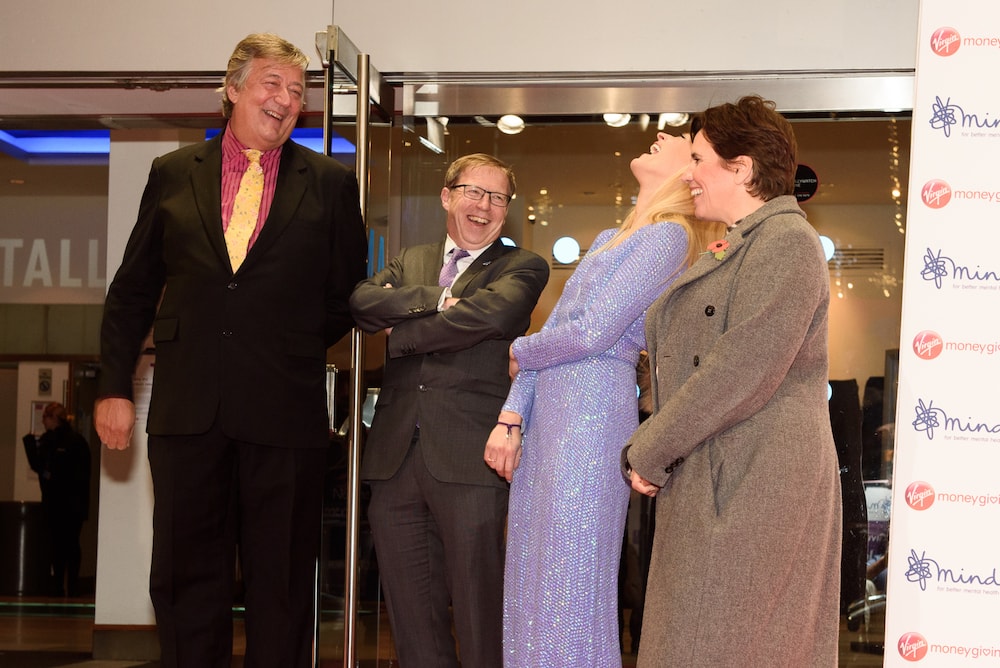Could there be a time where mental and physical health have parity of esteem? Mind boss Paul Farmer speaks to Maurice Richmond on the challenges mental health faces today in ‘unravelling decades of underfunding’, and his hopes for future preventative care
How did you become involved with Mind?
I’ve been working in health and emotional health charities since 1991; I worked for Samaritans and Rethink Mental Illness before Mind. The driver for that is a couple of personal things; in my family there’s a history, like so many, of people who have mental health issues. Also at university, a good friend of mine had a very bad breakdown and nobody knew what was going on, or what to do. That had a big impact on me and, working at Samaritans, it struck me how it was such an important issue for our society.
What’s changed the most since you started working in mental health?
The way we’ve shifted the stigma line. In the 90s and noughties, the only headlines about mental health were when somebody would kill themselves. Thanks to things like Time To Change, and thousands of individual people having their conversations, we’ve seen it shift – I don’t think there would have been a Happiful magazine 20 years ago! Now, mental health gets senior management and political attention.

Paul Farmer
Some people are frustrated that awareness is good now, but little is happening in terms of policy. Do you agree?
There’s three ways to look at this. Firstly, is there a plan for mental health and does it contain money? The answer is yes. Secondly, is that going to be delivered? The answer is hopefully, because there’s a lot of momentum behind it, so politicians need to ensure it happens. Thirdly, is it sufficient? The answer is very clearly, no.
This year is the most crucial in the Five Year Forward View for mental health – we’re into the third year. This is the point where we want to see real change. At the moment, not enough people are seeing enough change.
Why is that?
We’re trying to unpackage decades of under-investment, which all parties are responsible for. This won’t change overnight. You can’t magic-up doctors, nurses and therapists without investing in their training. That’s happening, but there’s no doubt people feel the pace of change is not fast enough.
How could things be speeded up?
There are some things where you can move more quickly than others. If you recognise the role of community-based mental health services as part of the overall, then those have a little more flexibility. Our local Minds are running these services, and the difference they make is incredible.
You can quickly invest in those, but for many people their mental health experience is not about what happens inside the NHS. It’s putting mental health into the heart of criminal justice policy and social policy, housing for example. There’s still a lot of work to do. The best and worst example of this is in people’s experience of the welfare system.
Does it frustrate you that some feel mental health is being used as a political pawn between parties?
Our objective is to ensure that mental health is being discussed and features in the plans of all political parties. We work with everyone and want to see mental health treated as the most important issue.
A good friend of mine had a very bad breakdown and nobody knew what was going on, or what to do
In the last General Election, there was an analysis of each party’s political manifesto, and each contained more references to mental health than any other health condition in any other set of manifestos from any other General Election since the Second World War.
So, we can say the engagement is positive, and significantly improved. Our challenge is to raise the level of expectation among all parties for what ought to be possible. The debate on mental health, and how much needs to be spent, comes into play. I actually think it’s one of those issues where there is a lot of consensus on what is needed.
Do you think full parity between physical and mental health is possible?
It wasn’t that long ago that nobody was talking about cancer, now you can’t really threaten cancer services, quite rightly. That’s the place we want to get to with mental health.
When the Five Year Forward View plan was published, I was asked: “Is this going to get us to parity of esteem?” We are very clear that it is not going to happen in this five-year period. The next step has to be what the next equivalent of the Five Year Forward View for mental health is going to look like, and how close to parity we can get in that period.

Stephen Fry, Paul Farmer, Fearne Cotton and award venue Odeon’s Kathryn Pritchard just before the Mind Media Awards 2017
Can we do it in a 10-year timeline?
I think we should be aiming to try to do that. What does that mean in reality? Having the same level of confidence in access and quality of services you are going to receive. You know roughly how long it is going to take you for A&E and long-term care; you should know this for mental health. Confidence in the quality and quantity of staffing. Confidence in the resources to embed all this over the period of time. That’s a basic principle of parity. The rest of it means investing in prevention; there’s a lot work that goes into physical health, but relatively little, or virtually nothing, going into mental health.
Nothing?
Very little. The current proportion of local authority spending on mental health is less than 1%, based on our yearly survey. We’re used to receiving messages around smoking or the benefits of good physical activity. We haven’t yet been given the mental health promotion and prevention.
Could mental health be part of TV ads, bus slogans and billboards in the future?
Absolutely, because that is what we need. The two places where we are seeing that start to emerge is in schools, where some are investing in the wellbeing of their kids, and in the workplace. The idea of workplace wellbeing is starting to catch real attention.
How do you see the future of local Mind branches?
I am a big fan of the “federated” model, quite a lot of chief executives aren’t! So what we are seeing among our network of people, who are absolutely extraordinary, is that their strength is in their understanding of their local communities. I don’t think there’s a chief executive who could hope to have a better understanding about what is going on in Aberystwyth or Hull as our local Minds do. The branches are going through a period of evolution – becoming much more sustainable. Like all charities who have a reasonable reliance on local authority funding, they’ve been through a pretty tough time. They’ve absolutely come out the other side, though. We have a slightly smaller number of Minds, but helping a greater number of people. They are the hive of innovation, and we want to pull up that innovation.

Paul Farmer with Fearne Cotton
With volunteers, are you finding more or less people wishing to get involved?
We have roughly 2,500 volunteers and 1,000 staff. One of the positive aspects is that more people want to engage.
I think it’s really encouraging that the change is beginning to happen. We know from the Time To Change campaign, that it’s the younger generation – the 18–34 age group in particular – who are driving the positive-attitude change. Awareness and fundraising go hand-in-hand for us as a charity, but for individuals they want to do something to help.
Could more be done to push the mental health agenda in sports and arts?
The sporting world has surprised us with its willingness to engage – from the elite to grassroot levels in sport. This is helped by the sports media, who you wouldn’t necessarily expect to be that supportive, who have been pretty good and understanding of high-profile players such as Aaron Lennon and Marcus Trescothick. [In May 2017, footballer Aaron Lennon was detained under the Mental Health Act, while cricketer Marcus Trescothick left England’s tour of India in 2006, later citing mental illness as the reason for his departure.]
It’s pretty poor that people are being discriminated against on the grounds of their mental health. Our whole purpose is to eliminate that
Arts are in a slightly different space. You’d expect the arts sector to be quite aware of the issue of people’s mental health. Pretty much every single great play ever written has a mental health theme at some point. Interestingly, our media advisory team will work with the Royal Ballet and the Royal Shakespeare Company about depicting these issues.
In terms of responsibility and duty of care, recently it was revealed some insurers are reluctant to cover mental health. What are your views on this?
It’s pretty poor that people are being discriminated against on the grounds of their mental health. Our whole purpose is to eliminate that. We need to encourage the insurance sector to understand what’s driving some of these exclusions. I think some are realising this is an own goal.
Why do you think some insurers are discriminating?
We are shifting from a state of relative ignorance into a phase of awareness, followed by outrage, followed by action. We want to move quickly – awareness is good, but that has to be sustained. People are asking the questions, now we need to get into action.
To find out more about Mind, visit mind.org.uk
To support Paul in raising money for Mind through running the London Marathon, head to Virgin Money Giving and search for Paul Farmer


Comments